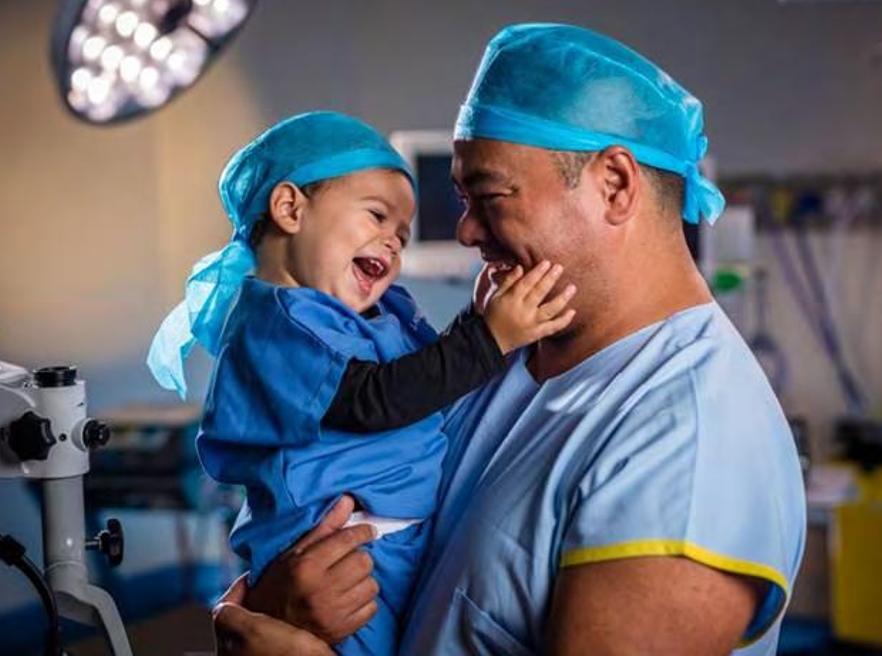Black excellence and community leadership were honoured at this month’s National NAIDOC Week Awards.
By Tahnee Jash and Carly Williams for ABC News
The major award winner dedicated his award to raising awareness of the devastating rates of middle-ear disease impacting First Nations people.
The NAIDOC Person of the Year in 2023 is Worimi man Professor Kelvin Kong, who is Australia’s first Indigenous surgeon.
“I’m accepting this award on the back of terrible ear statistics, I’m ashamed of that,” the ear, nose and throat surgeon said in his acceptance speech.
“But I don’t want to dwell on some of the horrible statistics of some of the operations I do — I’d rather dwell on some of the happier successes.”
Outside of his job at John Hunter Hospital on Awabakal country, Dr Kong spends time in remote areas where patients battle with long waiting lists and a shortage of specialists.
Middle-ear disease is impacting more than 50 per cent of First Nations children living in remote communities.
“Our culture, it is so wonderful,” Dr Kong continued in his speech.
“For our Elders who have done so much for us — I stand here before you because of the opportunities you gave to us and it is so pleasing to be here representing what you’ve done.”

From NextSense: Professor Kong is part of the expert network of surgeons we work with to deliver cochlear implant services. He’s passionate about early intervention and equal access to quality hearing healthcare for Aboriginal and Torres Strait Islander children. It’s wonderful to see this public recognition for his clinical work and his advocacy.
Prof. Kong qualified as the first Aboriginal Fellow of the Royal Australasian College of Surgeons. He practises in Newcastle, NSW, as a surgeon specialising in Otolaryngology and Ear, Nose and Throat surgery and spends time working in and for remote communities in Australia.
This great profile on the NAIDOC site describes his work to ensure barriers to learning, education, employment and healthy living are eradicated for Aboriginal and Torres Strait Islander people.
“If we can reduce the risk of hearing loss, we can have a direct impact on a child’s ability to learn and develop. The change that we see is remarkable,” he said.

